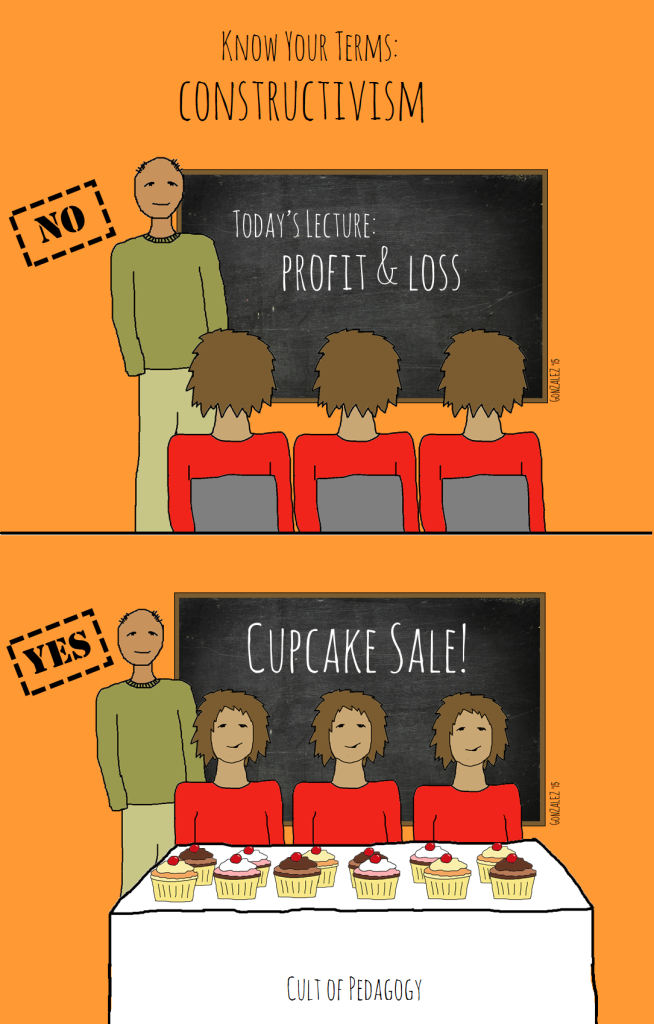
constructivism
(noun) A theory of learning based on the idea that humans construct their own knowledge through direct experience, as opposed to being taught concepts in the abstract.
A constructivist teacher believes that in order to learn, students need as many hands-on experiences with objects, skills, and people as possible. Constructivism provides students with rich experiences and encourages them to reach their own conclusions.
Applying Constructivism in the Classroom: Some Examples
To fully understand what constructivist teaching looks like, consider these sample learning activities:
____________
Not Constructivist:
Having students read a textbook chapter about the Industrial Revolution and answer comprehension questions about it.
Constructivist:
Having students participate in this amazing simulation to learn about assembly lines and working conditions during that time period.
____________
Not Constructivist:
Giving students the formula for the surface area of a cylinder and having them calculate the area of 10 sample cylinders.
Constructivist:
This lesson, where 7th grade math teacher Chris McCloud has students construct the formula for a cylinder’s surface area by trying to decide whether a given piece of wrapping paper will be enough to wrap two cans of mandarin oranges.
____________
Not Constructivist:
Telling students their persuasive writing must contain a claim, reason, and evidence.
Constructivist:
Having students read several well-written persuasive pieces, determine which features make them effective, and construct a rubric listing those qualities for their own persuasive pieces. Then, after students have written their own pieces, have them read more good examples and refine their criteria.
The Constructivist Hall of Fame
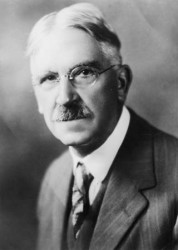
John Dewey
“Give the pupils something to do, not something to learn; and the doing is of such a nature as to demand thinking; learning naturally results.”
To learn more about John Dewey, visit his entry in the Internet Encyclopedia of Philosophy.
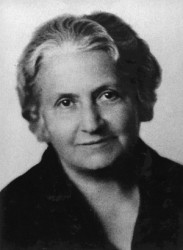
Maria Montessori
“Education is not something which the teacher does, but a natural process which develops spontaneously in the human being. It is not acquired by listening to words, but in virtue of experiences in which the child acts on his environment.”
Read more about Montessori philosophy from the American Montessori Society.
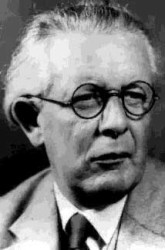
Jean Piaget
“Each time one prematurely teaches a child something he could have discovered himself, that child is kept from inventing it and consequently from understanding it completely.”
Read more about Piaget’s philosophy in this chapter from the book, Developmental Psychology.
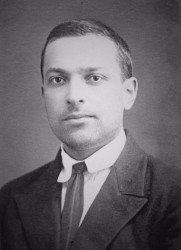
Lev Vygotsky
“A child’s play is not simply a reproduction of what he has experienced, but a creative reworking of the impressions he has acquired. He combines them and uses them to construct a new reality.”
This article from Scholastic summarizes Vygotsky’s philosophy.
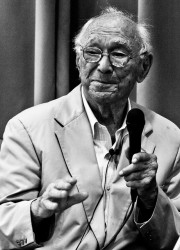
Jerome Bruner
“The concept of prime numbers appears to be more readily grasped when the child, through construction, discovers that certain handfuls of beans cannot be laid out in completed rows and columns. Such quantities have either to be laid out in a single file or in an incomplete row-column design in which there is always one extra or one too few to fill the pattern. These patterns, the child learns, happen to be called prime.”
For more information on Bruner, read this summary from Instructional Design.
_________________________
Know Your Terms is my effort to build a user-friendly knowledge base of terms every educator should know. New items will be added on an ongoing basis. If you hear some term at a PD and don’t want to admit you don’t know what it means, send it to me via the contact form and I’ll research it for you.
I would love to have you come back for more. Join my mailing list and get weekly tips, tools, and inspiration — in quick, bite-sized packages — all geared toward making your teaching more effective and joyful. To thank you, I’ll send you a free copy of my new e-booklet, 20 Ways to Cut Your Grading Time in Half. I look forward to getting to know you better!

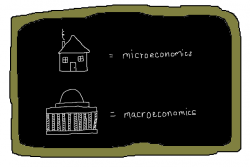


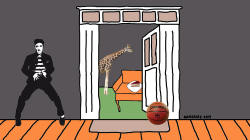
Love the idea however it’s unrealistic in today’s public school setting. There are not enough time and resources. 🙁
While I agree that constructivism is both time and resource-intensive, I encourage teachers to seek out at least one lesson per year that tends to soak up a lot of time anyhow and see if a constructivist approach to that same content might be a more effective way of getting students to internalize the concepts.
I think one of the persistent challenges in modern public education is that our pacing guides are fundamentally unrealistic. Because school boards and politicians are convinced that one can always “raise standards,” mission creep has packed our curricula with outrageously cluttered and/or ambitious content expectations, which drive the pace of instruction such that few students have much hope of reliably separating wheat from chaff or seeing the connections between concepts.
As near as I can tell, none of the evidence-supported best practices are compatible with current content pacing because the research consistently shows that it takes time to absorb new ideas. Shortcuts only short-change the student on an investment in education. But you may be able to use one of these more time-intensive approaches with essential content to better prepare the bulk of your students for next year’s follow-on course (or for the rest of their lives, as the case may be).
Sorry, but as an art educator of nearly 18 years in public schools, this is absolutely possible. Where there is a will, there is a way!
I’ve been looking through your site…absolutely LOVE so much of what you have here…until I just read this page and I am mortified. As a professor of education with a Ph.D. in pedagogy, and former professor at Ohio State University, this has been so refreshing…until, the behaviorism bashing. When will this stop, and the understanding take hold? You, like so many before you have gotten Behaviorism bloody wrong. Please stop perpetuating the MISeducation of this important philosophy and science. Need help? First of all, Behaviorism is a philosophy, not a tactic as you describe. Second, behavior analysis, more accurately, is what you are bashing. But if you understood it correctly, one could take your statement above and replace constructivism with behavior analysis, albeit with minor changes: “A constructivist teacher believes that in order to learn, students need as many hands-on experiences with objects, skills, and people as possible.” Like this, “A behaviorist teacher believes that in order to learn, students need to come in contact with as many hands-on experiences with the environment around them (e.g., objects, skills, and people) as possible.”
If you truly want to represent Pedagogy and yourself as a professional, get to know the other “ism’s” accurately and respectfully represent pros and cons, but not MISeducation.
Hi Tim. Thanks for your contribution. I certainly don’t want to misrepresent other philosophies, nor do I want to spread misinformation. In looking back over the post, my guess is that the phrase you take issue with is this one:
“Unlike behaviorism, which focuses on getting students to give a desired response to stimuli (do this work, get a grade),…”
And if I were to dig deeper, I would guess that it’s the bit in the parentheses that’s especially bothersome. I can see why — it definitely oversimplifies it. My goal with this site is to make these concepts easier to consume and understand. By striving for that, I might unintentionally cut corners. When someone like you comes along and points out an issue like this, I value the opportunity to extend and refine my original post. I would love to hear more from you. How would you most accurately characterize the behaviorist approach, and what do you believe are its advantages?
Hello Tim, I agree that perhaps behaviorism has been MISapplied. I think we would both agree that the foundation of behaviorist theory is the important role of environmental factors on influencing behavior, early to the exclusion of innate or inherited factors. The learning, as advocated by behavorists, is through operant conditioning (stimulus-response) and does not give enough room for what the learner already knows. It has been described that the factors of the human mind are a “black box” and cannot be known or seen, therefore do not count as scientific evidence of behavior controls. Behaviorism is primarily concerned with observable behavior, as opposed to internal human events, like thinking and emotion.
I conclude that Behaviorism has a role in education for some learners who are able to respond to that type of approach, which is often used for low-level learning on Bloom’s Taxonomy. To reach higher, preferable levels of creativity, the constructivist methods are better suited. I will stop “bashing” behaviorism when evidence is shown that this learning theory can do elevate learning to the higher order of creative thinking.
To further credit and validate Jennifer’s viewpoints expressed in this article, I write from my experiences as an academic (professor of instructional technology) and as a practitioner (K-20 instructional coach) with a Ph.D. in Instructional Systems.
Respectfully, Steve
I don’t know if you want to avoid clogging your site with weedy subsections, but if there’s still room you may want to expand your section on constructivism. While Dewey, Montessori, and Piaget are definitely the founding voices of the approach, its resurgence in the 1980s concurrent with the rise of PCs led to a few spin-offs, like Papert’s constructionism and Wells’ modeling approach to Newtonian physics. And in the past 15 years or so, the rapid expansion of personal electronics (to the point where we have Google in our pockets and many already own 3D printers at home) is making constructionism in particular more relevant even than it was in the 1980s and 1990s. It is possible that the extra-curricular maker movement will eventually merge with constructionism, but this has yet to happen in any formal way.
Anyhow, I was just passing this along. I stumbled across your podcast while searching PodKicker for education-related podcasts. Yours has the advantage of being dense with quality information – something other podcasters struggle to achieve – so I took the time to check out your website as well. I suspect I’ll be back here quite a bit; I’ve pinned it as a persistently-open tab in my Chrome browser. Once I’ve had time to listen to your full podcast archive I’ll be sure to post a review on iTunes. Keep up the good work!
I thought of Papert while reading through this post, as well.
I love the constructivist hall of fame. Those are GREAT quotes that I would love to follow every day! Those quotes will help me reach for the goal of a constructivist chemistry teacher!
Hello,
I am a pre-service teacher and just finished taking my Educational Psycology class. Based on my understanding of constuctivisim this post is misleading (I may also have a miss conception). My understanding of constuctivisim is that it describes how learning happens internally in the mind. Schema are constructed in the mind based on equilliberation though assimilation and accomadstion. Constuctivisim does not describe what happens externally of the mind to allow learning to occur. When you describe what types of instruction are constructivist or not is is misleading because any instruction can lead to the construction of schema. The type of instruction you are describing is the experianlist theory pioneered by John Dewy and Maria Montesori. Experianlist focuses on what is external of the mind and allows for cognitive development. They believe in the type of instruction described as constructivist. Perhaps constuctivisim and experinalisim can be synomous, but that is not how we treated them in my class (that doesn’t mean it isn’t right) also in my class we made a distinction between constuctivisim and Vygotsky’s socio-cultiral theory where he describes the use of culturally mediated artifacts (tools (external) and signs (internal) to achieve the object of an activity. Perhaps I am confused and constuctivisim is an umbrella term for many theories that believe in the abstract construct of a mind unlike behaviorism. I am a little confused by this term and some clarification would be nice. It could be that experientalisim, socio-cultural theory, social cognitivist and other theories are all subsections of constuctivisim. I will ask my professor for clarification.
Thanks, Cassandra. Let me know what you learn. My intent here was to give a fairly simple, broad definition, but I do want it to be accurate!
Hello,
After reviewing my notes and talking with my professor, I did have a misconception. The experientialists, socio-culturalist, and social cognitivist all fall under constuctivisim and are just different theories for how knowledge is constructed whithin the constuctivist theory. Thank you for this post, it helped me break a misconception and understand learning theory a little better. The schema constuction I mentioned is cognitivist theory not constuctuvisim and is another branch of constuctivisim and I guess I got the terms confused. Your post is accurate, I just had a misconception about the term constructivisim. Thank you.
I am currently doing a paper on educational theory and philosophy withing teaching pedagogy. You have really helped me to get my mind working on the use of constructivism, Thankyou!